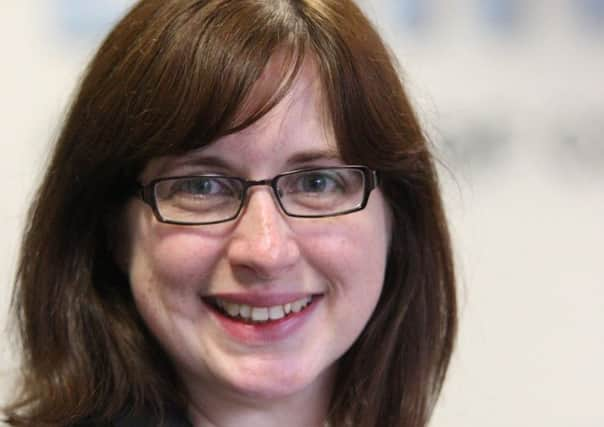Circular economy extracts maximum value – Mayan Grace


Fuelled by the capital’s international reputation as a “must-see” destination and also by its world-leading festivals, Edinburgh enjoys high hotel occupancy rates and a successful, diverse and high-quality hospitality sector.
The World Heritage Site of our Old Town, the splendour of the Georgian New Town and the engineering marvel of the Forth Bridges all lend an international appeal to our city.
Advertisement
Hide AdAdvertisement
Hide AdWith international and domestic travellers ever-more conscious of the ethical responsibilities of their travel, Edinburgh’s tourism and hospitality sectors also enjoy a real opportunity to become a leading player in appealing to the growing numbers of environment-conscious visitors through embracing circular economy thinking.
A circular economy looks to keep the flow of materials and products within the economy for as long as possible, extracting the maximum value from them whilst in use. It’s where businesses, industry and consumers work together to make things last.
Scottish Rugby is one example, an organisation which draws large numbers to BT Murrayfield for many events. It is determined to embrace circular economy thinking to convert its massive matchday operations to play a big part in creating a better environment.
At the same time, the operators of rugby’s national stadium believe the changes they are making will also help increase efficiency.
Introducing reusable cups for hot and cold drinks was high on the list. Already, reusable beer cups (introduced for the 2018 autumn tests) have removed more than 250,000 single use plastics this year.
But Scottish Rugby is also looking at how it disposes of waste, how it reuses materials – for example grass cuttings which are composted – and how players and coaches can help deliver positive circular economic messages.
A Scottish Rugby spokesperson said: “We’re very supportive of a circular economy, minimising waste and maximising the use of materials. At Scottish Rugby we’ve examined ways in which we can reduce our environmental impact, working with suppliers, sponsors and staff.
“It is a complex task, and one we will continue to review and evolve.”
Advertisement
Hide AdAdvertisement
Hide AdThe introduction of reusable beer cups means supporters’ cups can be reused at each game. Under the scheme supporters pay a £1 deposit on top of the cost of their first drink for the cup which they then take back to be refilled each time they buy an additional drink at the normal price. At the end of the match, they return the cup and get their £1 deposit back – the cup is then washed ready to be used again at the next event.
In addition to all of this, BT Murrayfield’s award-winning grounds team endeavours to use only organic materials in the care of pitches, both in terms of feeding programmes and grass removal – composting all grass cuttings, for instance.
The city’s festivals have already recognised the potential of the circular economy and have been working with Circular Edinburgh. Festivals Edinburgh helped facilitate a workshop showcasing the city’s key sectors and the opportunities for the circular economy, looking at solutions to circular challenges in the waste streams typical to Edinburgh’s festivals and events.
Production, marketing and catering materials (used by festival organisers, partner venues and artistic companies) make temporary cultural events in urban centres possible. However, they also generate significant amounts of waste. But a circular economy approach can provide the stimulus for creative innovation, turning waste to wealth.
A number of measures being looked at include a reusable cup deposit scheme, reusable food containers as alternatives to single use containers, apps or QR codes instead of producing brochures, reusable flyers that can be reprinted, a brochure deposit scheme, and using sustainable and vegetable dyes.
Circular Edinburgh is an initiative funded by Zero Waste Scotland, supported by funding from both the Scottish Government and the European Regional Development Fund through the £73million Resource Efficient Circular Economy Accelerator Programme. Circular Edinburgh delivers a programme of engagement to promote the circular economy to local businesses.
For further information please visit www.edinburghchamber.co.uk/circular-edinburgh/
Mayan Grace, head of projects, Edinburgh Chamber of Commerce.